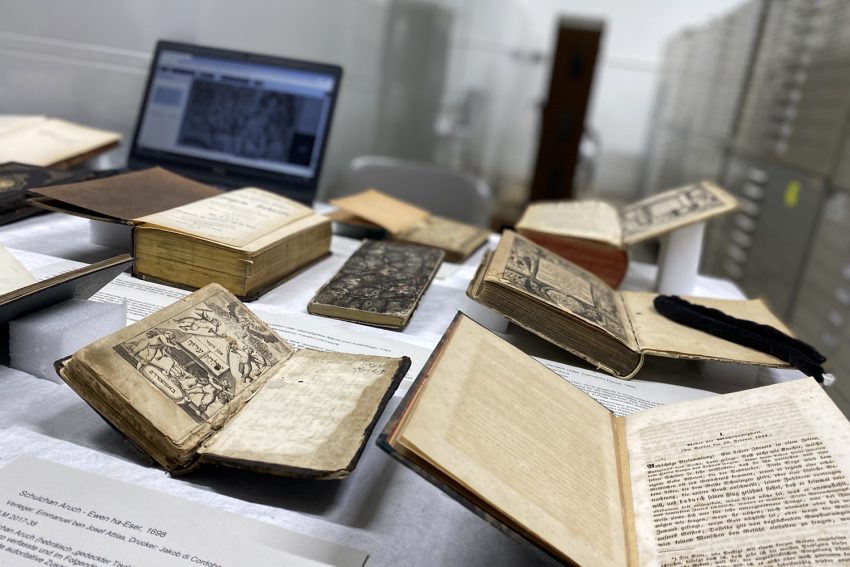Jewish cultural heritage in the digital world Cooperation with the University Library makes digitisation of Judaica possible
Together with the Jewish Community of Braunschweig and the University Library (UB), the Braunschweigisches Landesmuseum was able to make 25 publications from the museum’s Judaica collection available digitally, worldwide and free of charge via the publication server of Technische Universität Braunschweig, just in time for this year’s Hanukkah festival.
After being selected by the Braunschweig Landesmuseum, the publications were scanned at the University Library and digitised cooperatively in the digitisation software “Kitodo”. The software, which is being further developed with the support of the German Research Foundation, is mainly used in academic libraries throughout Germany to digitise manuscripts, prints and journals.
For the project, two handwritten prayer books from the 18th century, among other items, were digitally made available to the public and researchers for the first time.
However, not only magnificent handwritten manuscripts were selected for the project, but also publications of particular historical value, such as the journal “Unzer Sztyme”, which was published between 1945 and 1947 immediately after the liberation of the concentration camp in Bergen Belsen as the camp newspaper of the Displaced Person Camp in the British zone. Here, the digitisation contributes particularly to the preservation of the collection, since the paper quality of the journal is poor due to the circumstances of the time.
For the digital presentation, the University Library added structural features to the digital copies, such as page numbers, bookmarks and chapters. Since many publications are written in Hebrew, this work posed particular challenges for the librarians at the UB. “By digitising and indexing these outstanding works and creating free access to them, the University Library is strengthening open science and citizen science,” says UB Director Robert Strötgen.
At the end of the project, the collection was uploaded to the TU Braunschweig publication server, where it is now freely available to the whole world including researchers.

